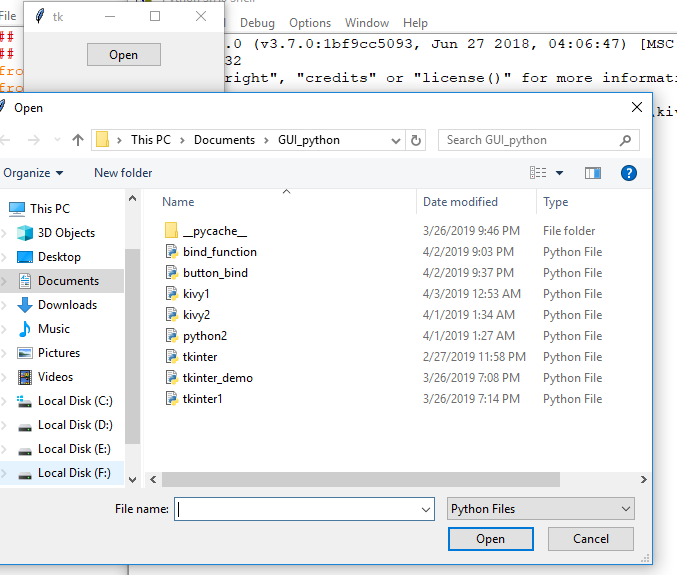

- #How to open arf file in python update#
- #How to open arf file in python code#
- #How to open arf file in python download#
- #How to open arf file in python free#
This script is used to export data into a flat binary structure. Currently, no effort is made to splice data across entries or files. Each new entry is given an updated timestamp and attributes from the source entries. This script is used to reorganize very large recordings, possibly contained in multiple files, into manageable chunks. This package comes with a few additional scripts that do fairly specific operations. This is useful when data collection programs generate log or settings files that you want to store in the ARF file. The -read-attr operation can be used to read out those attributes. The -write-attr operation can be used to store the contents of text files in top-level attributes.
#How to open arf file in python update#
The -U (update) operation can be used to add or update attributes of entries,Īnd to rename entries (if the -n flag is set).
#How to open arf file in python free#
The underlying HDF5 library, this does not free up the space, so the file is Instead of extracting the entries, they are deleted. The -d (delete) operation uses the same syntax as the extract operation, but TheĮntries are copied without modification from the source ARF file(s) to the The -A flag is used to copy the contents of one ARF file to another. Each entry/channel is listed on a separate line in path notation. other operationsĪs with tar, the -t operation will list the contents of theĪrchive. The ARF container that is also supported by the target container is copied. The metadata options are ignored when extracting files any metadata present in Currently only wave is supported, butĪdditional formats may be supplied as plugins (see 4). The extension of the output template is used Supported field names includeĮntry, channel, and index, as well as the names of any HDF5 attributes The format defined by the python string module. Names and file format of the output files. The -n argument can be used to customize the All sampled datasets in each entryĪre extracted as separate channels, because they may have different samplingīy default the output files will be in wave format and will have names with If no namesĪre specified, all the entries are extracted. The entries to be extracted (in -x mode) can be specified by name. Specialized import procedures can be easily written in Python using the arf Clearly this does notĮncompass many use cases, but arfx is intended as a simple tool. Which can speed up I/O operations slightly.Ĭurrently only one sampled dataset per entry is supported. The -u option tells arfx not to compress the data, All of the entries created in a single run of arfxĪre given these values.
#How to open arf file in python code#
The DATATYPE argument can be the numerical code orĮnumeration code (run arfx -help-datatypes for a list), and indicates the

The -n, -a, -e, -p, -s, -T options are used to store information about theĭata being added to the file. To override this, the -n flag can be used to specify the base name Īll entries are given sequential names based on this. Input file has more than one entry, they are given an additional numericalĮxtension. By default, entriesĪre given the same name as the input file, minus the extension however, if the Specified on the command line, and added in the order given. When adding data to an ARF container ( -c and -r modes), the input files are Supportįor additional file formats can be added as plugins (see 4).
#How to open arf file in python download#
Make sure that you download the ARF version!!! These scripts require the nbrplayer to convert the files.


 0 kommentar(er)
0 kommentar(er)
